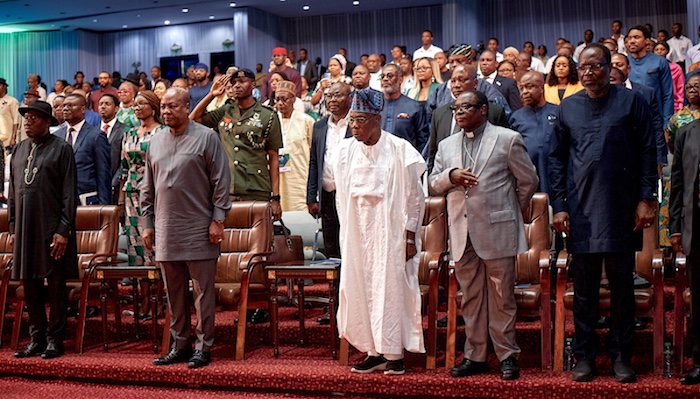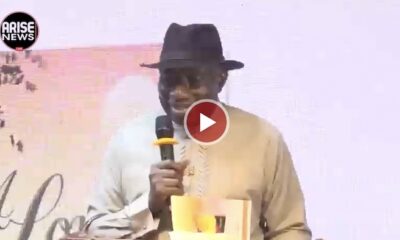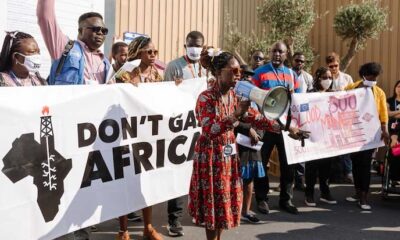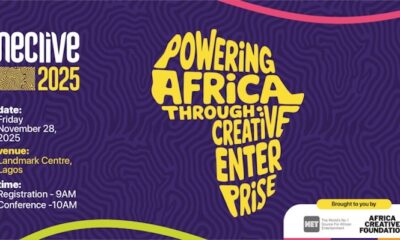Politics
Leaders Urge Urgent Reforms to Save Democracy in Africa

Former Nigerian President Goodluck Jonathan and other prominent African leaders have issued a stark warning regarding the future of democracy on the continent. During the 2025 edition of the Goodluck Jonathan Foundation (GJF) Democracy Dialogue held in Accra, Ghana, they emphasized that without urgent reforms, democracy in Africa faces collapse. Jonathan asserted that leaders who fail to deliver results should be removed through proper electoral processes.
Joining the call for reform, former President Olusegun Obasanjo and Ghana’s current President John Dramani Mahama highlighted the serious threats to democratic governance, including electoral manipulation and weak institutions. Jonathan pointed to electoral malpractice as a key challenge, stating that it undermines the very essence of democracy, which should reflect the will of the people.
Electoral Integrity and Public Disillusionment
Jonathan remarked, “Democracy in the African continent is going through a period of strain and risk of collapse unless stakeholders come together to rethink and reform it.” He expressed that the expectation for democracy to meet citizens’ needs is critical. “When leaders fail to meet these basic needs, the people become disillusioned,” he added.
He urged for a system where electoral processes are respected, allowing citizens to vote leaders out if they do not perform. “Our people want to enjoy their freedom. They want their votes to count during elections,” Jonathan said, emphasizing the desire for equitable representation, security, and access to essential services.
Former President Mahama echoed these sentiments, warning that democracy will not endure without collective effort to strengthen and protect it. He identified issues like elite capture and external interference as significant threats to citizens’ trust in democratic institutions. “Democracy will not survive if we don’t work for it,” he stated, urging for a renewed commitment to accountability and transparency.
The Need for Reform and Accountability
Obasanjo, who chaired the event, warned that Africa’s current practice of democracy is unsustainable. He declared, “Democracy dies because democracy has refused to be reformed.” His comments reflected a deep concern that current democratic practices have strayed from their original intent of serving all citizens.
He criticized the notion of a “government of the majority,” suggesting it marginalizes minority voices and undermines inclusivity. “What we have now is a government of some people, by some people, over all the people,” Obasanjo lamented, emphasizing that true democracy requires reforms that ensure it serves everyone.
Obasanjo also addressed allegations regarding his desire for a third term in office, firmly denying such claims. He asserted that if he had wished for it, he would have succeeded, stating, “There is no Nigerian, dead or alive, who will say I called him and told him I wanted the third term.” He noted that securing debt relief for Nigeria during his presidency was a more significant challenge than pursuing additional terms.
The President of the ECOWAS Commission, Dr. Omar Touray, stressed that democracy must encompass more than just elections. He highlighted the importance of accountability, discipline, and tangible results in governance. “Unless accountability governs the relationship between citizens and governments, we will continue to sit on gold mines and oil wells but wallow in poverty,” he remarked.
In a powerful keynote address, Bishop Matthew Hassan Kukah urged politicians to demonstrate genuine commitment to democratic norms. He called for public officials to embody a lifestyle of service that inspires confidence in governance, emphasizing that politics should not become a tool for self-enrichment.
The discussions at the GJF Democracy Dialogue reflect a growing recognition among African leaders that the time for reform is now. As Jonathan, Obasanjo, and Mahama highlighted, the survival of democracy in Africa hinges on the collective efforts to address its shortcomings and renew the commitment to serve the people effectively.
-

 Entertainment3 months ago
Entertainment3 months agoAnn Ming Reflects on ITV’s ‘I Fought the Law’ Drama
-

 Entertainment4 months ago
Entertainment4 months agoKate Garraway Sells £2 Million Home Amid Financial Struggles
-

 Health3 months ago
Health3 months agoKatie Price Faces New Health Concerns After Cancer Symptoms Resurface
-

 Entertainment3 months ago
Entertainment3 months agoCoronation Street’s Carl Webster Faces Trouble with New Affairs
-

 Entertainment3 months ago
Entertainment3 months agoWhere is Tinder Swindler Simon Leviev? Latest Updates Revealed
-

 Entertainment4 months ago
Entertainment4 months agoMarkiplier Addresses AI Controversy During Livestream Response
-

 Science1 month ago
Science1 month agoBrian Cox Addresses Claims of Alien Probe in 3I/ATLAS Discovery
-

 Entertainment4 months ago
Entertainment4 months agoKim Cattrall Posts Cryptic Message After HBO’s Sequel Cancellation
-

 Entertainment2 months ago
Entertainment2 months agoOlivia Attwood Opens Up About Fallout with Former Best Friend
-

 Entertainment3 months ago
Entertainment3 months agoMasterChef Faces Turmoil as Tom Kerridge Withdraws from Hosting Role
-

 Entertainment4 months ago
Entertainment4 months agoSpeculation Surrounds Home and Away as Cast Departures Mount
-

 World3 months ago
World3 months agoCole Palmer’s Mysterious Message to Kobbie Mainoo Sparks Speculation





















